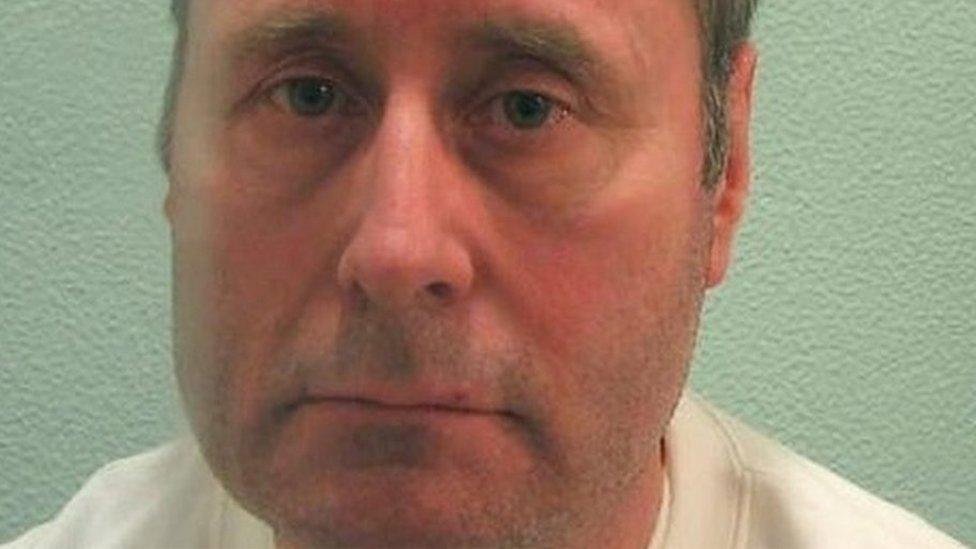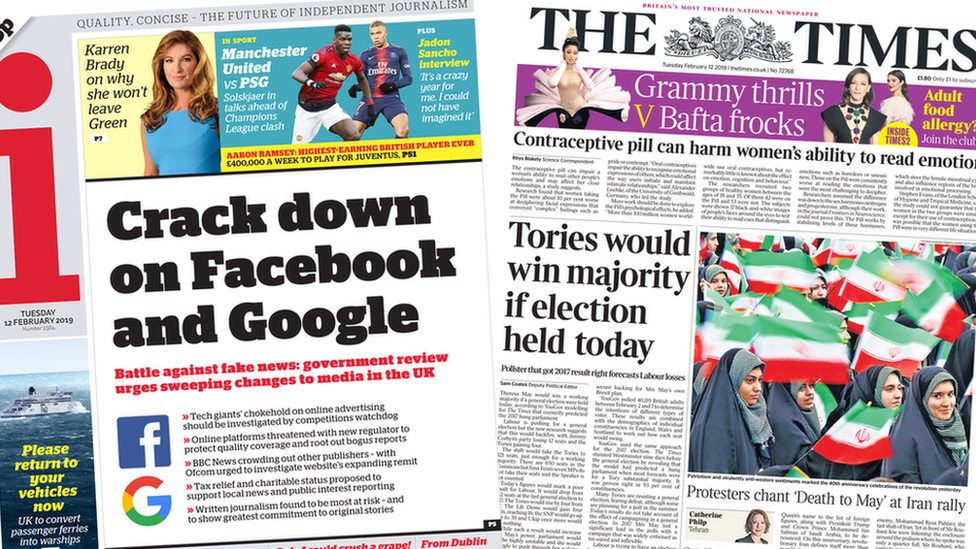News Daily: Tougher taxi rules and US shutdown deal
- Published
If you want to get this briefing by email, sign up here
Protecting passengers

Anyone convicted of a serious or sexual crime could be banned from driving a taxi or mini cab under new government proposals. All drivers in England and Wales could also be forced to install CCTV in their vehicles which could be accessed in the event of a crime being reported.
Those are two of the ideas from the Department for Transport which thinks vulnerable passengers need more protection. A national licensing database could also be created to stop a driver banned from operating in one area of the country simply moving to another where checks are more lenient.
Fears around taxi travel have often focused on unlicensed drivers, but the case of serial rapist John Worboys - pictured above - highlighted the danger those licensed can pose too. The sexual abuse scandals in Rotherham and Rochdale also involved licensed drivers, some with criminal records.


Wall wars
A deal has been reached - in principle at least - behind closed doors in Washington to avoid another US government shutdown. The previous shutdown - in which many non-essential discretionary government functions were discontinued - began on 22 December, lasted 35 days, cost $11bn and left 800,000 employees without pay.
The root cause of the troubles is disagreement over border security, in particular, President Trump's wall between the US and Mexico - he wants the money to fund it, rival Democrats don't want to give it to him.
Not much is known about the agreement reached on Monday night - or whether the president will back it. He told supporters in Texas he hadn't had time to study it, but insisted: "We're building the wall anyway." Reports say the deal includes $1.375bn (£1.07bn) in funding for physical barriers - far short of the $5.7bn President Trump has been demanding.
Cairncross Review
A major government-backed review into the future of news in the UK has said public money should be used to support local journalism to prevent it disappearing altogether. Readership of local newspapers has plummeted in recent years, with many closing down. Dame Frances Cairncross says a new Institute for Public Interest News could work in a similar way to the Arts Council, channelling money to worthy sources. She is also recommending the creation of a regulator to oversee tech giants like Google and Facebook to ensure their news content is trustworthy.
But BBC media editor Amol Rajan said the review was most striking for what it left out - no call, for example, to make social media companies pay for the privilege of using news content created by others.
'I wish GoFundMe didn't need to exist'
By Dave Lee, BBC North America technology reporter
In today's world, for a sick child, going viral can mean the difference between life or death. Or it means an injured firefighter has the chance of a full recovery. Indeed, California-based GoFundMe has become the last hope for many Americans, in a country where social safety nets can be tragically hard to come by. The site has a growing number of international users too. For some, the success of GoFundMe stands as proof of humanity's innate desire to help each other. For others, the site's continued existence is a monument to inequality.
What the papers say

A mixed bag in the papers on Tuesday. The admission by Work and Pensions Secretary Amber Rudd that the roll-out of universal credit has led to an increase in the use of food banks is the main story for the Independent and the Daily Mirror. "It's all our fault" is the Mirror's headline. The Daily Mail highlights the case of a nurse who died from cervical cancer after mistakenly being given the all-clear six times. Julie O'Connor was "let down by the NHS she loved", it says. On Brexit, the Guardian reports that Theresa May hopes to convince the Commons to give her another fortnight's grace to keep pushing for changes to her withdrawal agreement in Brussels. An unnamed ally tells the Financial Times: "We had a series of meetings where they effectively told us they were not prepared to give us the things that we need." The Sun says cabinet ministers believe Mrs May is preparing to resign as prime minister this summer - after delivering Brexit - so she can influence the choice of her successor.
Daily digest
'Hold our nerve' PM to update MPs on Brexit
Bin woes Councils receive more than 1.8m complaints about missed collections
Care workers Young people targeted in recruitment drive
Equine flu Racing to resume after outbreak
If you see one thing today

If you listen to one thing today

If you read one thing today



Lookahead
20:00 The Champions League knockout stages begin with Manchester United v Paris St Germain
On this day
1994 One of the world's best-known paintings, The Scream by Edvard Munch, is stolen from a museum in Norway